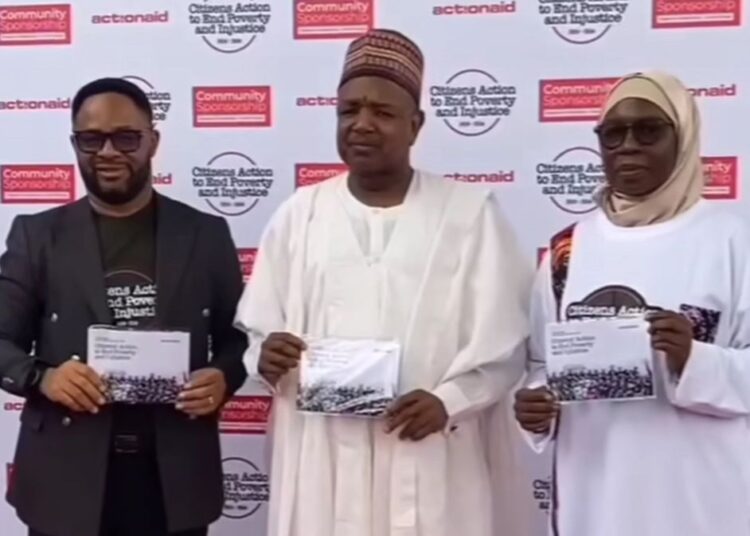ActionAid Nigeria has unveiled its latest Country Strategy Paper, titled “Citizens Action to End Poverty and Injustice in Nigeria,” as part of its ongoing efforts to eradicate poverty and social injustice in the country.
The 10-year strategy, spanning from 2024 to 2034, reflects the organisation’s deep commitment to addressing the critical issues of poverty and social injustice.
Addressing newsmen On Monday in Abuja, ActionAid Nigeria’s Country Director, Andrew Mamedu emphasised the significance of the strategy, stating, “This strategy is a testament to our unwavering commitment to eradicating poverty and social injustice, building on the solid foundation of our previous strategies and the relentless efforts of our dedicated team, partners, and communities.”
Mamedu highlighted the ongoing challenges of deepening poverty and social injustice in Nigeria, a nation with a population of 226 million that has yet to fully harness its demographic potential for economic growth and prosperity.
He described the new strategy as a bold response to these entrenched issues, with a focus on empowering communities, particularly women, young people, and persons with disabilities, to assert their rights and challenge the structures that perpetuate inequality.
“We will continue to innovate, collaborate, and advocate for policies that foster social justice and economic empowerment,” he added. “Together with our partners, movements, and allies, we will confront poverty head-on to create a pathway to a more just and equitable society.”
On her part, Chairman of the Board of Directors at ActionAid Nigeria, Dr. Jummai Umar, underscored the importance of citizens’ increased awareness and engagement in demanding social justice.
She noted this progress as a testament to the work done by ActionAid Nigeria and its partners over the past decade.
“Our ‘Citizens Action to End Poverty and Injustice (2024-2034)’ strategy represents ActionAid Nigeria’s commitment to collective action and expanded partnerships aimed at dismantling the deep-rooted causes of poverty and social injustice in Nigeria,” she said.
Umar stressed that to this end, the organisation empowers communities of actors to organise, mobilise, act, shift awareness, and thrive as they institutionalise change.





